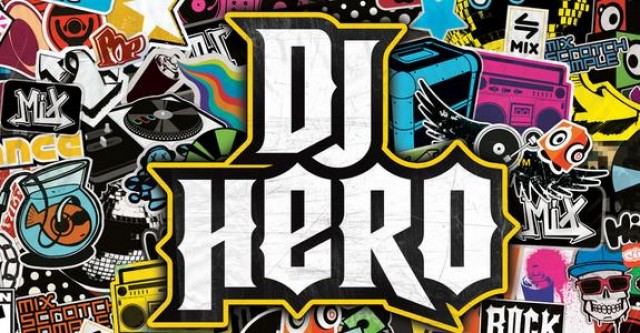
By 2009, Activision had already released a plethora of Guitar Hero titles for Wii and Nintendo DS. While the series enjoyed strong sales, particularly on Nintendo systems, franchise fatigue had started to set in. Between Guitar Hero and competitor Rock Band, interest in video games with space-consuming plastic peripherals had started to wane. Unfortunately, it was at this point that Activision released DJ Hero, one of the finest titles to come out of the music game craze. The title combined the familiar gameplay of Guitar Hero with a music-making style that had yet to be represented in video game form. The resulting game was a critical success, but sadly, gamers didn’t quite embrace the title, and sales were weaker than anticipated. The death throes of the music game genre had begun.
While the Guitar Hero franchise gained notoriety for YouTube videos of fans playing their fingers off to tracks like “Through the Fire and the Flames,” DJ Hero took a different approach. The game still provided a challenge, but the title emphasized a more laid back style of play compared to other games in the genre. Even the turntable peripheral gave a different impression than other instruments. Rather than forcing players to stand in front of the TV holding the instrument, players needed to take a seat to use the game’s turntable controller. The result is an experience that felt less intimidating, and more welcoming for newcomers.
DJ Hero‘s career mode places the player in the role of an aspiring DJ. Unlike other rhythm games, players are given two tracks to start off with, and successfully keeping with the game’s rhythm mixes the two songs. Despite appearances, players aren’t making custom tracks each time they play. Each song on the soundtrack has been prerecorded by famous DJs such as the late DJ AM and French duo Daft Punk. Giving players the freedom to create their own mixes would have certainly increased the game’s replay value, but the musical selections are so strong that it probably worked out for the best.
The Guitar Hero franchise had become well known for its musical variety, but DJ Hero‘s set of original mixes were unlike anything previously seen in the genre. While tracks like the Jackson 5’s “I Want You Back” and Third Eye Blind’s “Semi-Charmed Life” are familiar to most, the two songs were mixed into something that sounded familiar, yet completely different at the same time. As a result, DJ Hero had a unique sound that set it apart from any other rhythm title available at the time. Ninety-three original mixes in total appeared in the game, mixing hip-hop songs with disco, rock songs with electronic, and more. Unfortunately, Activision neglected to make the soundtrack available for sale outside the game, leaving illegal channels the only option for those looking to hear mixes like “Hollaback Girl vs. Give it to me Baby” at the gym. The game did, however, include a feature where players could allow the game to play itself, in order to encourage the musical selections to be heard at parties.
In the end, there are probably a lot of reasons that DJ Hero failed to find a larger audience, despite these strengths. Within months of release, the game bundle was heavily discounted at a number of retail outlets. Whether the audience had already moved past the genre, or perhaps fans felt they already owned enough fake plastic instruments, the title languished on store shelves. Seemingly undeterred, Activision released a sequel one year later, but the title didn’t quite have the same amount of charm as the original game. The musical variety, one of the strongest aspects of the original title, was replaced with less daring musical choices, and the package suffered for it. Sales of DJ Hero 2 fared worse than the original, just as the music game genre came to a screeching halt. A 3DS iteration was once in the planning stages, but that sadly fell by the wayside as Activision made the series a scapegoat for the commercial failings of the Guitar Hero franchise.
It’s always disappointing to see a good game fail to receive the sales figures it truly deserves. DJ Hero is far from the first game to fail despite strong reviews, but it doesn’t make it any less disheartening. One can only hope that Activision’s treatment of the music game genre will serve as a cautionary tale for publishers. It would be nice to see Activision revisit the franchise one day but, for now, we can simply appreciate DJ Hero for what it is: a music game that provided gamers with a truly different experience.




 ShareThis
ShareThis







DJ Hero was a brilliant twist on the music genre, but it doesn’t seem like a surprise it failed.
Trading the group performance aspect and instant familiarity of well-known songs for (mostly) solo showcases of remixed versions changed the demographic that DJ Hero appealed to.
Then there was the timing issue: plastic peripheral burnout was well underway. Even though the DJ controller is a fantastic piece of kit, it was a hard sell for people who already had an entire band sitting idly in their closet.
I really like both DJ Hero games and consider them “must play” titles. Unfortunately they never found the success they (IMO) deserved. :(